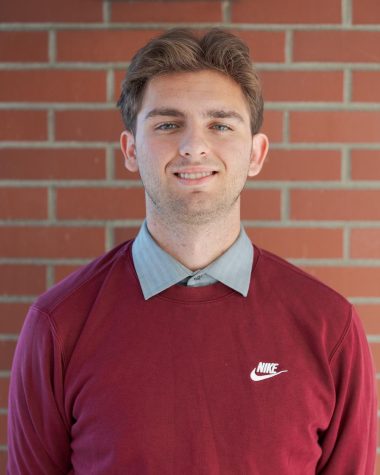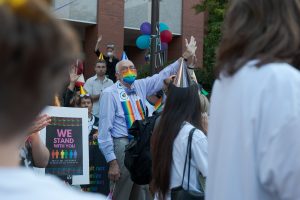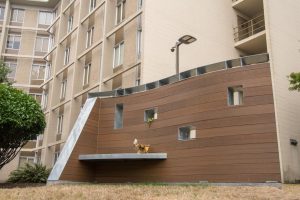What’s happening in Hong Kong?
SPU’s News and Nachos discusses the harsh realities of the Hong Kong protests
October 30, 2019
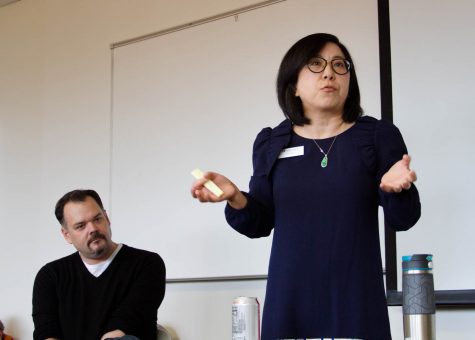
Professor Bian touches on the differences between Chinese and Hong Kong culture
Since the British lease expired in 1997, Hong Kong has been a special administrative region of China. Hong Kong’s current relationship with China allows the citizens of Hong Kong immense civil liberties and freedoms not allowed to any citizens of mainland China.
This era of freedom was almost ended in June, when China proposed an extradition bill that would allow Hong Kong criminals to be tried in China, thus undercutting Hong Kong law. This sparked violent protests that have continued consistently, even though the extradition bill was rescinded earlier this week.
The conflict in Hong Kong was the topic of this week’s News and Nachos event put on by the history department Thursday, Oct. 24.
Three Seattle Pacific University professors, all of whom lived in Hong Kong for a time, brought their expertise to the table in order to shed light on the conflicts at hand.
Associate professor of history Zhinguo Ye explained the context of Hong Kong’s unique history, as it pertains to the current protests.
She began her discussion by pointing out the importance of background information, saying that any historical event “is not just what’s occurring at this moment, you have to understand the historical context of the event.”
Ye illustrated how Hong Kong was taken as a prize by the British Empire during the Opium Wars from 1833-1841. After many years, China and Britain negotiated a treaty allowing Hong Kong to be under British control until 1998.
Ye also explained that after Britain’s “lease” ran out, Margaret Thatcher — the prime minister of the United Kingdom at the time — negotiated for Hong Kong to keep the many freedoms it enjoyed under British rule until 2047.
According to Ye, this began the era of ‘one China, two systems,’ which meant that Hong Kong would become a part of China but would be able to make their own laws. This led to Hong Kong becoming a major refuge for Chinese deserters which, according to Ye, is an embarrassment to China.
It is for this reason, as well as the communist party’s vision of total unification, that has caused China to slowly encroach upon Hong Kong’s civil liberties.
Assistant professor of political science Bradley Murg built on Ye’s background information by telling his audience about this complex issue by first pointing out that Hong Kong is not the paradise it is made out to be.
“This protest did not come out of the blue,” Murg said.
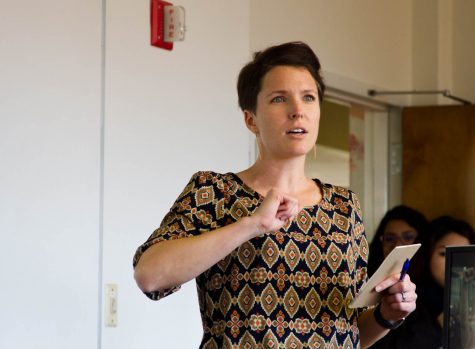
Professor Walter introduces the three guest speakers on the topic of what is happening in Hong Kong with China.
China does not allow Hong Kong to select its own political leaders, thus undercutting democracy.
According to Murg, Chinese President Xi Jinping became a dictator after over 40 years of shared power throughout the communist party.
“This simply can’t be ignored,” said Murg. “Over the last few years it’s gotten so bad that my friends in Hong Kong were flying the British flag.”
Assistant professor of Chinese Xu Bian articulated the different views that Christians in Hong Kong hold toward the current conflict, pointing out that their opinions aren’t as straightforward as one may think.
She asserted that many Christians are in favor of Chinese rule. “A lot of Christians read the new testament and believe all authority comes from God,” Bian said.
She explained that this view clashes with the Christians who are focused on the justice of the Bible. “Relationships in the home are being divided by the protest,” according to Bian.
Bian then also pointed out that many Christians are simply focused on helping those who are injured in the protest.
A short question and answer segment wrapped up the session.
“What is the worst-case scenario for Hong Kong?” one student asked.
Ye said that these violent protests are “the last resort for Hong Kong,” and that many residents of Hong Kong who have watched China slowly dismantle their civil liberties do not know what they will do if these protests do not succeed.
Murg reassured the room that Hong Kong’s current autonomy is “guaranteed until 2047.”
He said that, if China were to start executing protestors as often as they did in 1989 during the Tiananmen square protests, “there would be no way the West couldn’t respond.”
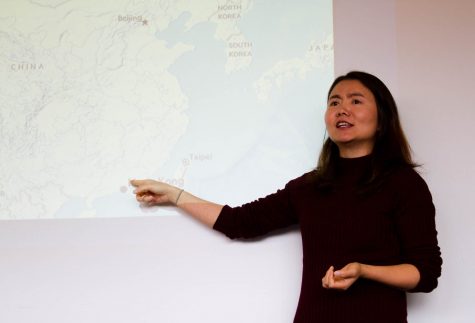
Professor Ye pinpoints the exact location of Hong Kong on the map.
Murg believes that if the free democracies in Europe and North America got involved “it would throw the global trade chain into chaos.”
He explained that threat from countries like the United States, Britain and other western democracies is the worst-case scenario for China, which does grant a bit of security to Hong Kong.
“China can’t simply aggregate the treaty. The ‘one China, two systems’ is guaranteed in the treaty signed with the United Kingdom, so the British do have rights,” Murg said.
“China can’t just say ‘we’re going to end this special administration nonsense.’ They can’t do it, it would go to the United Nations, so Hong Kong does have some degree of protection.”
Correction: News and Nachos was held on Oct. 24, 2019 not Oct. 23.
















































































